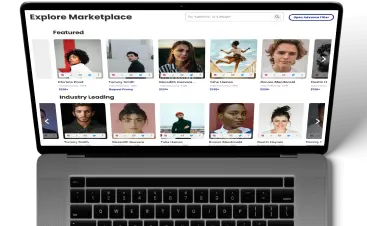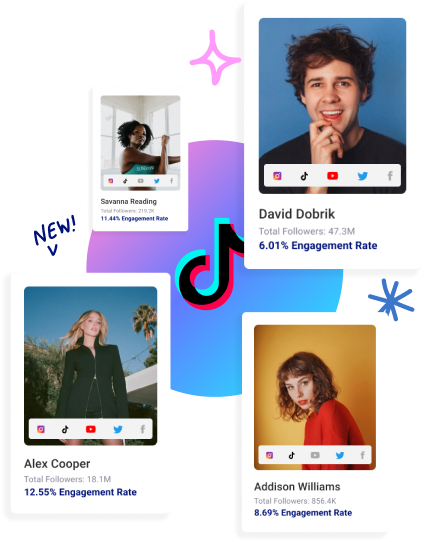Let’s start from the very beginning.
What is targeted marketing? Targeted marketing is a marketing strategy that focuses on reaching a specific group of people, also known as an intended audience, meaning those who are most likely to be interested in a product or service. This is done by identifying and assessing your social media target audience’s demographics, interests, and needs to then create messaging that’s tailored to them.
By focusing on your intended audience, you can increase campaign effectiveness, reach the right people (at the right time, in the right way), and generate conversions with new customers. This marketing strategy is also cost-conscious and prevents you from wasting time, money, and resources on ineffective initiatives.
Targeted Marketing 101
There are three main ways to tackle targeted marketing, including:
- Demographic Targeting: Targeting people based on their age, gender, income, location, and other demographic factors.
- Interest Targeting: Targeting people based on their interests, hobbies, and online activities.
- Behavioral Targeting: Targeting people based on their past behavior, such as the websites they have visited or the products they have purchased.
Here are three target marketing examples that show these different lanes:
- Demographic Targeting: A car dealership might target its marketing to people who live in a specific zip code.
- Interest Targeting: A software company might target people who have attended a recent trade show.
- Behavioral Targeting: A clothing retailer might target people who have recently viewed products on its website.
The 411 on Intended Audiences (And What They’ll Trust)
Who are the intended audience members? Knowing your primary audience is key in today’s oversaturated digital world.
According to Shopify, the targeted customers in your intended audience are the “most likely to purchase a specific product or service. It’s important for businesses to understand their target market, because members of this group are most likely to buy and recommend their products, improving the number of sales.” They continue by affirming that “broad, ‘catch-all’ marketing campaigns that attempt to appeal to everyone usually end up feeling generic to most customers.”
You can take a few actions to define your target market and increase your market reach if you’re unsure:
- Host focus groups
- Survey existing customers
- Keep tabs on competitors
- Dive into existing research
- Use Google Analytics to learn more about your customers
- Create a reader persona to target blog content
- Look at social media analytics
- Use Facebook Insights
- Check on website performance
- Engage with social media audiences
(Sources: Shopify and Hubspot)
Targeted Marketing to Baby Boomers
- Demographics: Baby Boomers are the generation born between 1946 and 1964. They are the largest generation in the United States, and they have a significant amount of disposable income.
- Interests: Baby Boomers are interested in travel, health and wellness, financial planning, hobbies, personal development, family and grandparenting, volunteering and social causes, home and lifestyle, arts and culture, philanthropy and legacy, and active retirement pursuits.
- Strategy: Baby Boomers respond well to marketing messages that are relevant to their interests and their stage in life. Messaging should be clear and direct and should emphasize value and quality. Focus on educational content such as guides, tutorials, and informative resources that address their interests and concerns. Give them whatever you can to allow them to make informed decisions and stay up-to-date with the ever-changing world around them. Baby Boomers are the generation most likely to respond to offline marketing channels, like television, radio, direct mail, and print ads. They are also more likely to be influenced by word-of-mouth marketing as they might see it as the most credible and trustworthy means of marketing.
Targeted Marketing to Gen X

- Demographics: Generation X is the generation born between 1965 and 1980. They are the bridge between Baby Boomers and Millennials, and they are often seen as more independent and less traditional than their parents.
- Interests: Generation X is interested in career advancement, family and parenting, financial security, health and wellness, technology, travel, personal development, pop culture nostalgia, home and lifestyle, and social causes.
- Strategy: Generation X is the generation most likely to act both online and offline, so having a seamless multi-channel marketing plan is essential. They respond well to authenticity, individualism, and informative content. You should provide comprehensive product descriptions, informative blog posts, how-to guides, and expert advice to appeal to their desire for knowledge and informed decision-making. Gen X is also big on convenience and time-saving, so highlighting quick delivery, easy returns, and efficient customer service will resonate with their busy lifestyles. Don’t be afraid to tap into nostalgia or retro appeal from their “formative years” (like the 70s, 80s, and 90s) because it can evoke memories of the “good old days.” Gen X is a generally financially established generation and seeks value for their money, so focus on cost-effectiveness, durability, benefits, and ROI.
Targeted Marketing to Millennials
- Demographics: Millennials are the generation born between 1981 and 1996. They are the largest generation in the workforce, and they are known for their early experiences with technology and social media platforms, forcing them to become savvy amid the inception of internet innovation.
- Interests: Millennials are interested in travel, technology, and social justice. They might also be more likely to be interested in experiences than in possessions.
- Strategy: Millennials respond well to marketing messages that are authentic and that speak to their values. Transparency and social proof are essential for millennials, so feature customer testimonials, ratings, and reviews in an easy and accessible way to boost trust and credibility. Focus on user-generated content campaigns, like hosting contests, encouraging reviews, and creating hashtags to build brand loyalty. Millennials also enjoy interactive and gamified experiences, so by incorporating rewards, loyalty programs, and exclusive perks for engagement, you’ll have a higher chance of their participation. As digital natives, this generation is also more likely to be influenced by marketing messages that are delivered through social media and mobile devices, so make sure their experience is optimized.
Targeted Marketing to Gen Z
- Demographics: Generation Z is the generation born between 1997 and 2010. They are the first generation to grow up with the internet and social media.
- Interests: Generation Z is interested in technology, fashion, food, travel, social media, and social justice. They are also more likely to be interested in sustainability and environmentalism.
- Strategy: Generation Z also responds well to marketing messages that are authentic and that speak to their values, but more specifically, they want to relate and be related to. Use interactive content and interactive experiences such as quizzes, games, polls, and AR/VR. Don’t be afraid of using humor or memes to connect with Gen Z. They are more likely to be influenced by marketing messages that are delivered through social media and mobile devices. Gen Z utilizes the widest range of social media platforms, with some deferring to static, still-image content and others leaning toward short-form video content. It’s worth noting that they’re also very discerning consumers, and are not easily swayed by marketing messages that they perceive as being inauthentic or manipulative, and are more privacy-conscious than previous generations, so be sure to affirm the security of personal information, be transparent about data usage, and show that you’re in-the-know about data protection best practices.
Targeted Marketing to Gen Alpha
- Demographics: Gen Alpha is the generation born between 2010 and 2025. They are especially known for their digital savvy and their entrepreneurial spirit.
- Interests: Gen Alpha, today’s youngest demographic, is interested in technology and digital entertainment, sustainability, diversity and inclusion, personalized experiences, education and learning, positive role models, family and social connections, and exploring their creativity and imagination.
- Strategy: Gen Alpha also responds well to marketing messages that are authentic and that speak to their values, but they are also the generation with the shortest attention span, so grabbing and keeping it can be a challenge. Content has to be visual and interactive, like animations and short-form videos as this generation prefers to engage with quick and informative content. This is the influencer-rich generation, so try to make informed decisions about who you partner with, making sure you’re working with the right person at the right time. They are also more likely to be influenced by marketing messages that are delivered through social media and mobile devices, especially things related to trends on social media, but they’re the generation that most appreciates personalized experiences. Offer customized products, recommendations, or experiences to Gen Alpha.
Access Targeted Marketing Insights With Glewee

Who are we? Glewee! We’re a software solution that fuses the gaps between brands and creators through technological innovation. Our application-based platform elevates influencer marketing, taking collaboration to new heights as we strive to reshape the creator economy.










